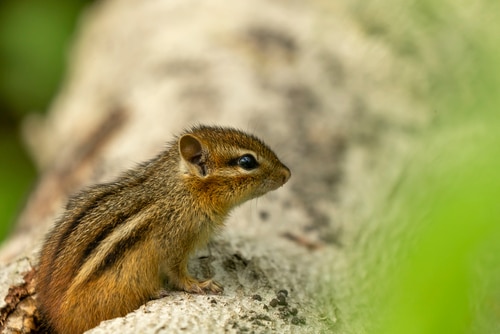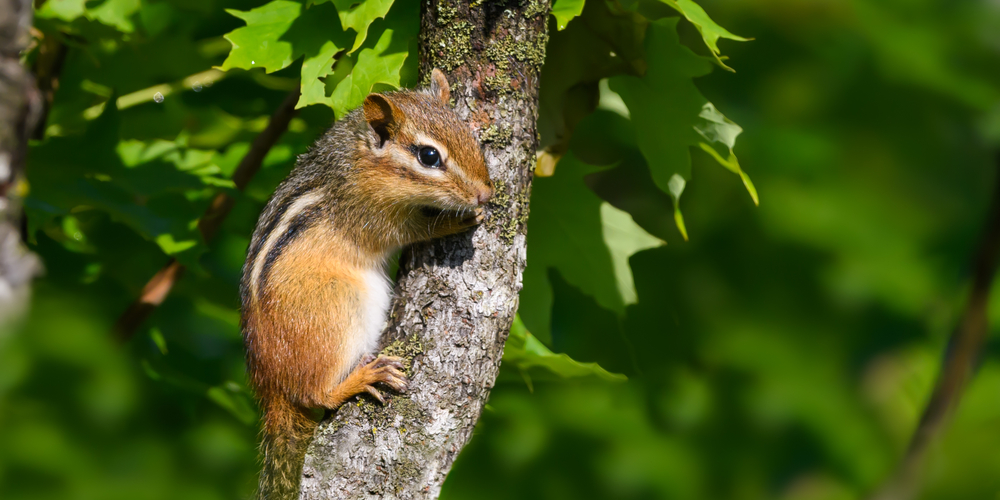The scientific name of chipmunks is Tamias striatus. For clarity, this detail is extremely important to answer this question correctly. In fact, most people think that all squirrels are basically the same animal. And, well, while they are not entirely off the mark, there are some differences that make the answer change, especially in certain States.
Do chipmunks climb trees? The answer is yes, they can. But also no, because they usually do not want to. Chipmunks are burrowing squirrels, and unlike tree squirrels, have bigger hands, which allow for comfortable digging. The chipmunk anatomy also tells us that their hind feet do not turn around, a feature that tree squirrels and flying squirrels have developed to climb plants with ease.
When Do Chipmunks Climb Trees?

Chipmunks are foodies by nature. But they are also at risk of starvation when the cold season approaches. So, they tend to climb on trees to get food, especially for storage.
In November, you might see some chipmunks rushing up and down some trees. You should also see their mouths filled with acorns and other nuts. When chipmunks behave in this way, they climb trees to get delicious nuts that they will eat after they hibernate in winter.
For clarity, chipmunks do not sleep all winter. They wake up, move around to get that blood flowing, and then eat part of their post-workout, protein-laden nutty reserve. They store food underground, in their burrows, as long as there is space. And they will keep climbing trees if no other food source is available.
Will A Chipmunk Climb Trees When Chased By A Predator?
Chipmunks will employ their acrobatic skills only as their last resort. And the reason for this lies in their defensive strategy.
To be precise, they are not social animals, and they become territorial fast. But they communicate between them nonetheless. They draw the attention of other chipmunks with warning calls.
The very “chip” sound they emit that earned them their name is also their vocal alert system. And it is effective. An alerted chipmunk will freeze, then repeat the sound. And if a predator starts to chase them, they will run to hide in a burrow.
Depending on the chasing predator, chipmunks may avoid climbing trees. Why? Because birds of prey may still be lurking around. And although even burrowing squirrels can parkour from one branch to another, the risk of falling is still high. Breaking their front teeth may result in extensive damage, if not death.
Do Chipmunks Sleep In Trees?
It is a summer morning. You step on your glistening porch deck, steaming coffee cup in hand, and see one of those gnawing mammals peeking out from a tree stump and stretching their little arms as well. Do chipmunks climb trees to go to sleep? Well, no. At least, very rarely.
During summertime, chipmunks may end up hiding in stumps. So they might stay, but very rarely, in their suite furnished with local wood. They always try to get back to their burrow every day. Every hole they dig is part of a larger underground system that allows these critters access to many entrance and exit points. So, it would be pointless for them to climb trees to sleep in them.
Related articles: How to fill a chipmunk hole?
